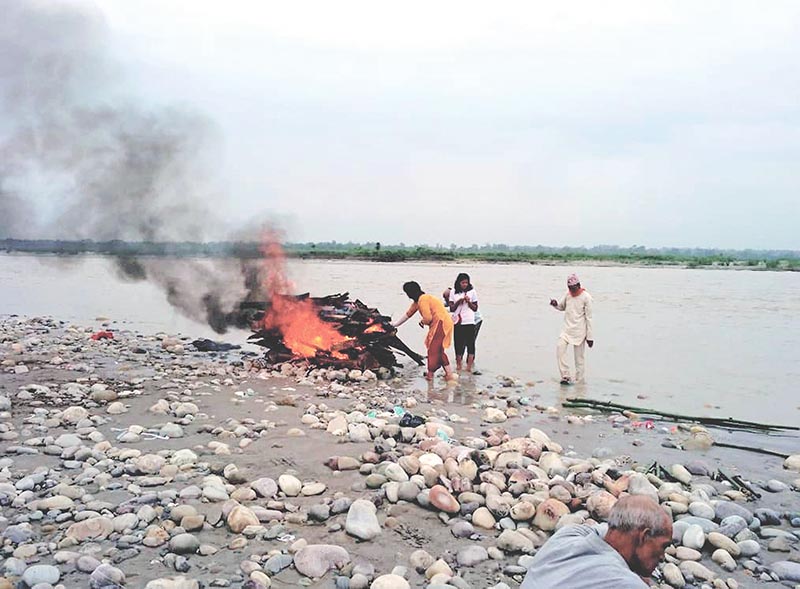Perpetrators can still be nabbed based on DNA: Experts
Kathmandu, July 25
Police may get important clues on people who raped and murdered Nirmala Panta if they conduct advanced test of DNA samples collected from vaginal swab of the 13-year-old, according to DNA experts.
A test conducted by the police had shown traces of male DNA in the vaginal swab of Nirmala, who was raped and murdered on July 26, states a National Human Rights Commission report released on January 23.
“But the volume of male DNA sample retrieved from Nirmala’s vaginal swab was too small. Also, the male DNA sample collected from the swab was highly degraded,” said Dinesh Kumar Jha, chief of DNA Unit at Nepal Academy of Science and Technology.
However, desired results can be generated from heavily damaged DNA samples if techniques like SNP genotyping are deployed, according to Jha, who is also a member of the high-level probe committee formed by the NHRC to investigate Nirmala’s rape and murder, which sparked nationwide protests.
But SNP genotyping cannot be performed in Nepal. “However, those tests can be carried out in highly advanced laboratories in developed countries,” said Jha, suggesting that the police send the male DNA samples collected from Nirmala’s vaginal swab to foreign laboratories.
The Central Investigation Bureau of Nepal Police in mid-February said it had started laying the groundwork to send the sample to foreign labs. It had also claimed to have exchanged e-mails with foreign labs. But even after five months police have made no headway.
“We did hold formal and informal talks with foreign technicians on this matter. But they did not encourage us to move ahead,” said CIB Director and Deputy Inspector General Niraj Bahadur Shahi, adding, “Generally, foreign laboratories hesitate to accept samples examined by other laboratories.”
However, a DNA expert told THT that police were “making excuses” because they did not have adequate volume of male DNA sample extracted from Nirmala’s vaginal swab to conduct necessary tests abroad.
Police deny that claim.
“We will send the sample to foreign laboratories to perform sophisticated tests if they show interest,” DIG Shahi said.
Nepal at present performs two DNA tests: Short Tandem Repeat (STR) and DNA sequencing. The STR is the most common method under which specific characteristics of the DNA are studied from two or more samples. DNA sequencing, on the other hand, is a method under which broken DNA samples are studied to identify the DNA type.
Nirmala’’s vaginal swab was tested using STR method.
Police have so far collected DNA samples of over 40 people, according to multiple sources. However, names of only 12 people have been made public. Police have interrogated more than 500 people in relation to the case.
Timeline
- July 26, 2018: 13-year-old Nirmala Panta of Bhimdatta Municipality in Kanchanpur district goes missing
- July 27: Nirmala’s body is found
- Aug 19: Police arrest mentally ill Dilip Singh Bista, 41, on charge of rape and murder of Nirmala. Locals protest, claiming he was not the culprit
- Aug 24: 14-year-old protester Sunny Khuna killed in police firing
- Aug 25: Government announces compensation of Rs 1 million each to families of Nirmala and Sunny. Police sack SP Dilli Raj Bista, DSP Gyanendra Bahadur Sethi and Inspector Ekendra Khadka for botching up investigation
- Sept 12: Nirmala’s parents visit Kathmandu to seek justice
- Jan 4: Nirmala’s mother and Khadak Bista, brother of Dilip Singh, file FIR against eight police personnel accusing them of misleading the investigation and torturing suspects in police custody
- March 6: Eight police personnel booked






